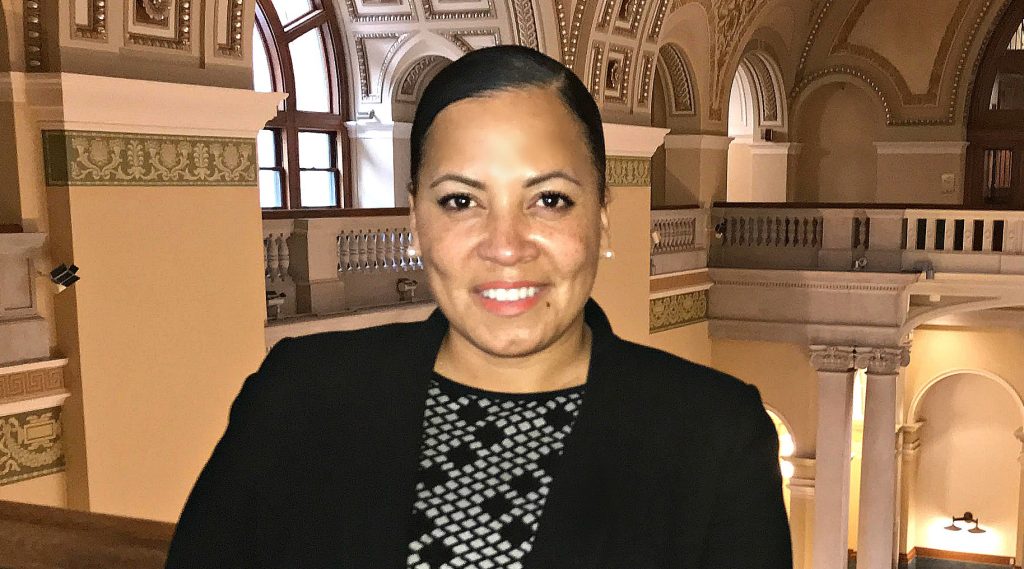One’s ability to effectively navigate complex issues in a leadership role is often strengthened by a personal connection to the issues at hand. Such is the case with former Suffolk Country District Attorney and current US Attorney for the District of Massachusetts Rachael Rollins, whose work on restorative justice is paving the way for an improved relationship between the US Attorney’s Office and the communities it serves.
Rollins discussed her understanding of restorative justice and her professional and personal experiences with the matter April 21 as the keynote speaker at “Exploring Restorative Justice: State, Federal, and Philosophical Perspectives Conference,” hosted at Boston College Law School by the Rappaport Center for Law and Public Policy.
Rollins explained how her perspective on the criminal legal system and justice in general has been shaped by her family and upbringing. Her father was a Navy Corpsman and former corrections officer, which contributes to her deep respect for law enforcement and the military. “I also have siblings and loved ones who have cycled in and out of the criminal legal system, struggling with mental health issues and substance abuse disorders,” said Rollins. “I’ve prosecuted people in the same courtroom where my brother was sentenced.” She said she brings those experiences to work with her every single day.
Having learned from her eye-opening experiences meeting people who are serving life sentences, Rollins said she requires anyone working in her office to visit Nashua Street Jail. “If we have the power to take away somebody’s liberty, we should at the very least step foot in the place that we are sending them and understand that,” she said.
“I truly believe restorative justice, truth justice, and reconciliation go hand in hand, and I want us to be thinking about the fact that restorative justice takes many different forms,” said Rollins.
She provided additional examples of restorative opportunities, including surrogate victims meeting with an offender or perpetrator, prosecutors meeting with individuals who have touched the carceral system—either still incarcerated or back in the community—as well as meetings between judges and offenders.
“Without us understanding the communities that are deeply impacted by the decisions that are made and the systems in place regarding our legal system, we are never going to move forward and change the wealth and race-based disparities that we see—a thread woven throughout this entire system,” Rollins said.
She explained that one of her missions as the prior DA and the current US Attorney is to “spread the sea” to allow the impacted communities to come to the front of the table and share their experiences.
“Communities are impacted because that is where the violence happens; they’re the ones who get the call or the knock on the door to say your son has been murdered this evening, or that your loved one has been charged with murder,” said Rollins. “One of those families will never see their loved one again, and the other one’s life trajectory is forever changed; both of those families often live in the same community.”
Rollins also stressed the importance of holding people accountable when they are violent but also of ensuring the accuracy and accountability of the prosecutorial process. She said in her three years as district attorney, her office has undone more than 400 years of wrongful convictions.
“This was not me unilaterally using my power; it was doing what was right and saying justice wasn’t done, and I believe that is an example of restorative justice,” said Rollins.
Following her keynote address were three panel discussions in which experts discussed federal and state approaches to restorative justice, as well as philosophical perspectives. Among the experts on philosophical perspectives was BC Law Professor R. Michael Cassidy.


